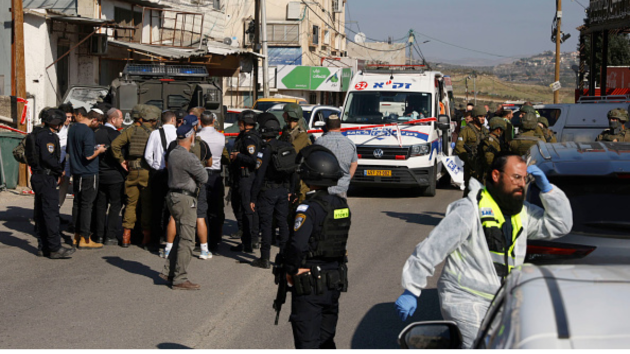Some families of US citizens say they face being separated when exiting Gaza
Written by ABC Audio ALL RIGHTS RESERVED on November 4, 2023
(GAZA) — Moments after President Joe Biden announced the Rafah crossing would open for “wounded Palestinians and for foreign nationals to exit Gaza,” hundreds of American families held their breath, eagerly awaiting to be reunited with their loved ones trapped in Gaza.
Many of those in Gaza eagerly combed the list of a few hundred names able to leave the region. One list with hundreds of names — including many American citizens — was released on Wednesday evening, and a second list was released Thursday.
“We won’t let up working to get Americans out of Gaza,” Biden said in a statement Wednesday, which was the first day that Americans were able to exit since Gaza came under siege in the wake of Hamas’ surprise terror attack on Israel on Oct. 7.
But almost instantly, a challenging new reality emerged. Some American citizens said they face leaving behind family members they traveled with to Gaza if they cross the border.
Mai Abushaaban, living in the U.S., said she carefully combed the list of hundreds of names that could leave Gaza that dropped Wednesday, feeling a renewed glimmer of hope that she’d be able to see her mother and sister.
She said her mother, who has been a U.S. citizen for many years, was on the list.
But Abushaaban’s 20-year-old sister — born in the U.S. and who recently became a dual Palestinian citizen — did not make the list on Wednesday.
Their lawyer, immigration attorney Maria Kari, was convinced it was a mistake and encouraged them to both go to the border together on Thursday morning.
“This is an oversight surely, like, at that point, I hadn’t heard of other families that were about to be separated. I was hopeful. Cautiously optimistic that this was just like an oversight,” Kari said.
At the Rafah crossing on Thursday morning, Abushaaban said they were told, “If your name is not on the list, you can’t make it through.”
“They kept pleading with them. They kept trying,” said Abushaaban.
Her mother refused to leave without her daughter.
Abushaaban said, “No mom wants to leave her child behind no matter how old or young they may be.”
The next day, the reverse scenario unfolded for Abushaaban’s family. This time her sister was on the list, but her mother was not. They decided on Thursday to stay together.
Families say their loved ones are left with an impossible choice: leave Gaza without their family members or stay together in an active war zone.
Some have directed their frustrations toward the U.S. government.
“I don’t have contact information for any other entity. I would not give highly sensitive information to any other entity. I’m going to share it with my government. So how are they not responsible for providing the list?” said Kari.
But a senior administration official told ABC News that the U.S. government does not control the border and that the lists are made by entities controlling the border crossing. The administration requested that U.S. citizens and their family members in Gaza give their names to U.S. partners in the region, Egypt and Qatar, the official said.
“We understand these are incredibly difficult circumstances and we are continuing to work towards the departure of more U.S. citizens, Lawful Permanent Residents, and their family members,” the official said.
Ramiz Younis is an American citizen based in Arkansas. His lawyer, Justin Eisele, told ABC News that Younis’ wife, Folla Saber, a permanent U.S. resident, took their 2 -year-old boy Zain and 8-month-old daughter Zaina to Gaza before the war broke out to visit family.
“I’m hoping the State Department believes this as well … the wife would be able to go because she’s a permanent resident and obviously, an 8-month-old and a 2-year-old cannot cross the border themselves. But that was not the case,” said Eisele.
Eisele says Younis was devastated to hear that the 2-year-old and 8-month-old American citizens were cleared to leave Gaza on both days, but so far, Saber’s name has not been mentioned on the list, and right now she remains in Gaza with her children, hoping they can all leave together.
“It’s frankly embarrassing, as a U.S. citizen myself, that we can’t get this done,” said Eisele.
Other families are concerned their elderly relatives cannot make the crossing alone.
The family of an 81-year-old American citizen from the San Francisco Bay Area said she has also been given clearance to cross the Rafah border alone, but has diabetes, lacks mobility and has suffered severe weight loss, according to Ghassan Shamieh, an immigration lawyer that represents the family.
Shamieh told ABC News that even in the United States, the 81-year-old has a full-time caregiver and is hoping to cross the Gaza border with her son, who has an active visitor’s visa to the U.S. but is not on the list to cross the Rafah border.
Shamieh said the son had specifically come to the United States to escort his mother to Gaza.
“Because she is medically fragile, she cannot go [back] by herself. And if she does, her family is worried that she won’t make it through this arduous process of crossing,” Shamieh said.
Kari said the State Department had e-mailed her clients multiple times before to attempt a border crossing before Biden announced the Rafah border had opened, but they met a closed border each of those times. She said those trips force the clients to risk their lives repeatedly. And she said the mental toll is often just as concerning
“We’re seeing that in our clients. They’re exhausted, they’re drained. They’re approaching a month of being stuck in an active war zone. These types of things are starting to happen. It’s this element of surprise that knocks these people off their feet,” Kari said.
On Friday morning, Abushaaban forced herself to stay awake, knowing her sister and mom would try making the journey across the border again.
She told ABC News, “I was scared there would be a chance they would never make it out.”
Then just after 4 p.m. in Egypt, the message she had been waiting weeks for suddenly hit her phone: “We made it across.”
Cell phone service was too spotty for her to hear her mom and sister’s voice.
But the message was enough.
“That is all I needed to hear,” said Abushaaban.
Copyright © 2023, ABC Audio. All rights reserved.






